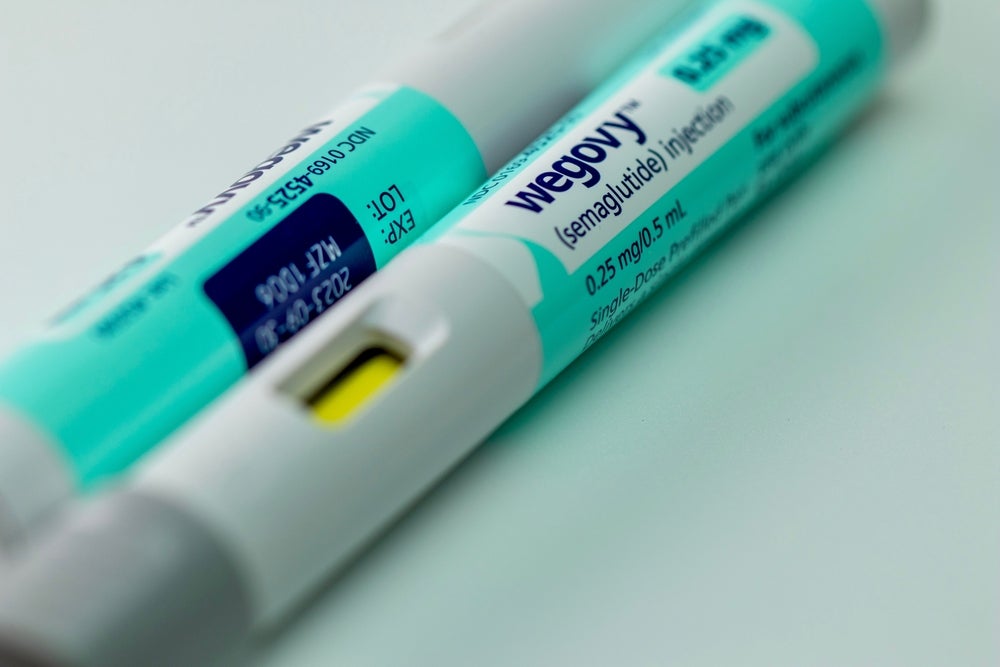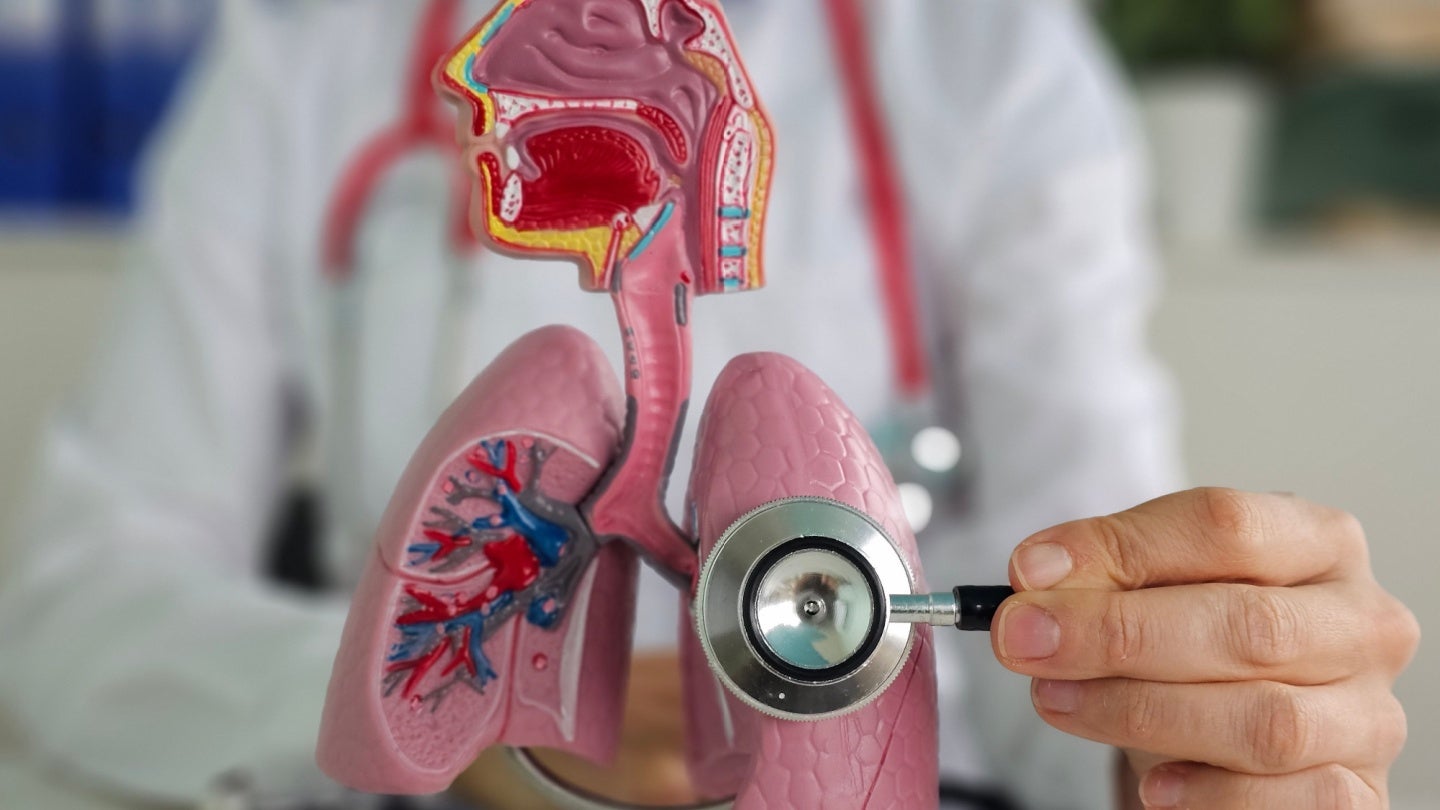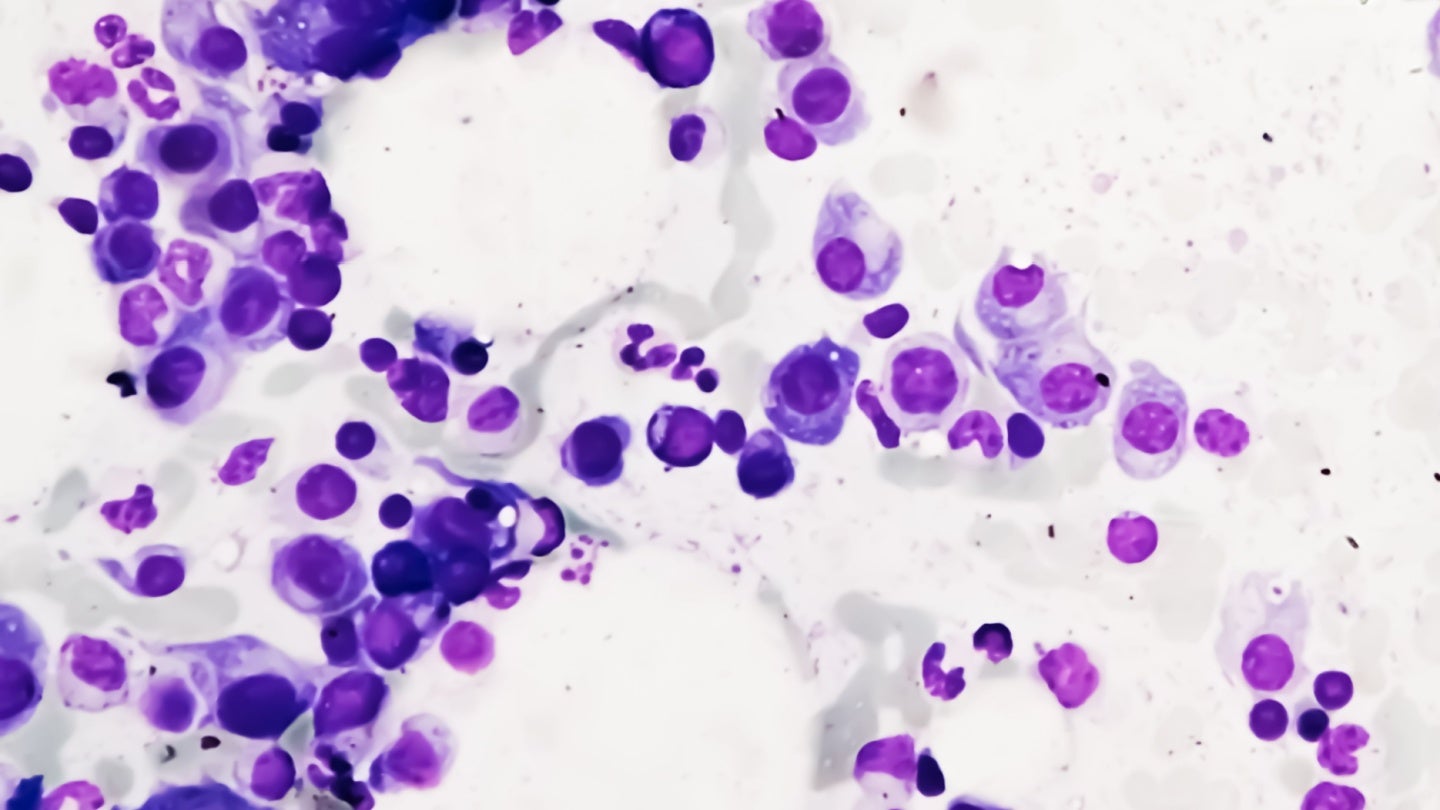The Gut-Hormone Connection: How Probiotics Support Women’s Hormones
Weight gain, hot flashes, digestive issues, low energy, and depression are just scratching the surface of what women feel during menopause as the menstrual cycles cease and hormonal changes take place. This can make menopausal women feel out of control, but we’re here to tell you that there’s a way back to feeling like yourself. […] The post The Gut-Hormone Connection: How Probiotics Support Women’s Hormones appeared first on Purality Health® Liposomal Products.

Weight gain, hot flashes, digestive issues, low energy, and depression are just scratching the surface of what women feel during menopause as the menstrual cycles cease and hormonal changes take place. This can make menopausal women feel out of control, but we’re here to tell you that there’s a way back to feeling like yourself.
It has to do with the gut-hormone connection.
We know what you’re thinking – what isn’t the gut connected to these days? And, frankly, we’re not sure! Recent research has shown that the type of bacteria in your gut plays a crucial role in the health of several health factors including your skin, immune function, cognition, and more. And now, research is showing that your microbiome can affect your hormones, which directly impacts everything from menopause to everyday health.
So, how does gut health affect women’s hormones, and what does that mean for women in menopause? That’s what this blog is all about! So, to find out how you can bring balance to your hormones through probiotics, keep reading!
How hormones change women’s gut microbiome
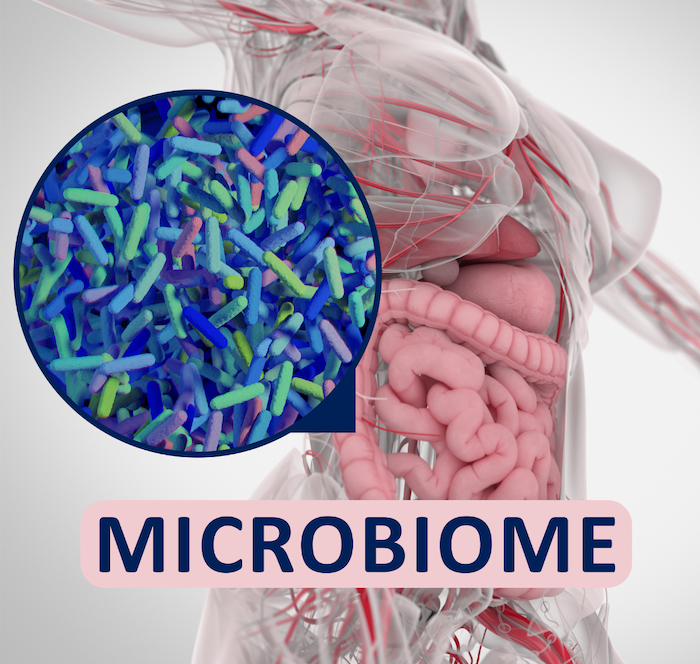 Our “gut microbiome” is the term for the bacteria living within our gut. There are about 100 trillion bacteria within our guts spanning 300 to 1000 different species. The types of bacteria living within the gut – from probiotics that benefit your health in various ways to pathogens that can harm your health – can be a major deciding factor in various health systems, affecting everything from how you look to how you feel.
Our “gut microbiome” is the term for the bacteria living within our gut. There are about 100 trillion bacteria within our guts spanning 300 to 1000 different species. The types of bacteria living within the gut – from probiotics that benefit your health in various ways to pathogens that can harm your health – can be a major deciding factor in various health systems, affecting everything from how you look to how you feel.
As we age, our gut microbiome naturally changes. The first major shift comes as babies when we switch from milk to food, and then, for women, there comes a major shift in adolescence. This is believed to be driven by female sex hormones and is proof of the gut-hormone connection and how it can have a major effect on women’s health.
The changes continue into menopause when the body stops producing sex hormones like estrogen and progesterone. Because these hormones affect your gut bacteria, this change alters your microbiome, and not for the better. Scientists have discovered that the more diverse the gut microbiome, the healthier it is. However, lower levels of sex hormones are linked to reduced gut microbiome diversity. [1]
But how does it work?
Are menopause symptoms caused by an imbalanced gut microbiome?
If you have unhealthy gut bacteria, you could experience several symptoms.
Some of the symptoms of poor gut health include:
 Autoimmune issues
Autoimmune issues
 Digestive issue
Digestive issue
 Skin issues
Skin issues
 Trouble sleeping
Trouble sleeping
 Fatigue and sluggishness
Fatigue and sluggishness
 Mood swings, including anxiety and depression
Mood swings, including anxiety and depression
 Unexplained weight changes
Unexplained weight changes
Do some of these symptoms sound familiar? If you were thinking they sounded a lot like changes that come with menopause, then you were right. And what’s interesting is that research from the University of Michigan found that the microbiome may even play a role in temperature regulation. [2]
This means the “hot flashes” famously associated with menopause could be stemming from an imbalance within the gut microbiome.
To better understand how this all works, we’ll have to discuss some science for a moment. Don’t worry; it’s not that complicated!
The microbiome and sex hormones – a two-way street
 The relationship between gut bacteria and hormones is a two-way street. Gut bacteria influence the amount of hormones you have in your blood, especially these sex hormones that women tend to lose through menopause.
The relationship between gut bacteria and hormones is a two-way street. Gut bacteria influence the amount of hormones you have in your blood, especially these sex hormones that women tend to lose through menopause.
When estrogen reaches your liver, it’s metabolized and attached to other compounds, meaning that it can’t affect the cells and tissues of your body as it normally would.
Once the process of your liver removing estrogen from your blood is complete, they’re sent to the gut to be excreted.
But this is where something interesting can happen. Once in your gut, some bacteria can “recycle” estrogen. They do so by simply unbinding the other compounds from your estrogen and sending it back into the blood supply. [3]
This same process also happens with other crucial hormones, including progesterone and testosterone.
But how is this a two-way street? Because hormones like estrogen actually feed healthy bacteria in your gut, meaning if you have high levels of estrogen, your body has the tools to nourish beneficial gut bacteria that can improve skin health and more. [3]
How menopause affects your microbiome
Unfortunately, research into the exact types of bacteria strains that are missing in the guts of menopausal women is lacking, but some studies have shown that there is indeed a change within the gut – some directly related to estrogen levels – that may impact women’s health during this time.
These include:
 Translocation – This is an occurrence within the gut where bacteria starts leaking from the gut into the bloodstream, and it happens more often during menopause. This can cause various diseases, even if the bacteria is otherwise beneficial within the gut. Research indicates that estrogen and other sex hormones can help strengthen the gut lining to lower the risk of translocation. [4, 5, 6, 7]
Translocation – This is an occurrence within the gut where bacteria starts leaking from the gut into the bloodstream, and it happens more often during menopause. This can cause various diseases, even if the bacteria is otherwise beneficial within the gut. Research indicates that estrogen and other sex hormones can help strengthen the gut lining to lower the risk of translocation. [4, 5, 6, 7]
 Bone health – As estrogen levels decrease, the risk of osteoporosis increases. This is a condition where the bones become weaker, which increases the risk of fractures. Research suggests that an increase of probiotics in the gut can help boost bone health. [8]
Bone health – As estrogen levels decrease, the risk of osteoporosis increases. This is a condition where the bones become weaker, which increases the risk of fractures. Research suggests that an increase of probiotics in the gut can help boost bone health. [8]
 Lower gut bacteria diversity – Remember, the more diverse your gut, the better. But studies show that menopausal women have a decreased diversity of bacteria within the gut. [9]
Lower gut bacteria diversity – Remember, the more diverse your gut, the better. But studies show that menopausal women have a decreased diversity of bacteria within the gut. [9]
 Reduced short-chain fatty acids – SCFAs have several health benefits, including managing blood sugar, weight, inflammation, and more. Certain probiotic strains increase the levels of SCFAs within the gut. Unfortunately, the levels of these bacteria drop during menopause. [10]
Reduced short-chain fatty acids – SCFAs have several health benefits, including managing blood sugar, weight, inflammation, and more. Certain probiotic strains increase the levels of SCFAs within the gut. Unfortunately, the levels of these bacteria drop during menopause. [10]
 Higher risk of obesity – One of the gut changes in menopausal women includes an increase in bacteria strains that are associated with obesity. [11]
Higher risk of obesity – One of the gut changes in menopausal women includes an increase in bacteria strains that are associated with obesity. [11]
 Increased inflammation – Women in menopause have also been found to have a sudden increase in levels of bacteria associated with inflammation and obesity, putting them at a higher risk of several diseases. [12]
Increased inflammation – Women in menopause have also been found to have a sudden increase in levels of bacteria associated with inflammation and obesity, putting them at a higher risk of several diseases. [12]
Probiotics for menopause
So, if you’re experiencing symptoms from menopause or from what you believe may be low sex hormones brought on by another reason, should you take probiotics? According to research, it could definitely help.
Studies show that taking probiotics can help with a range of menopause symptoms, including:
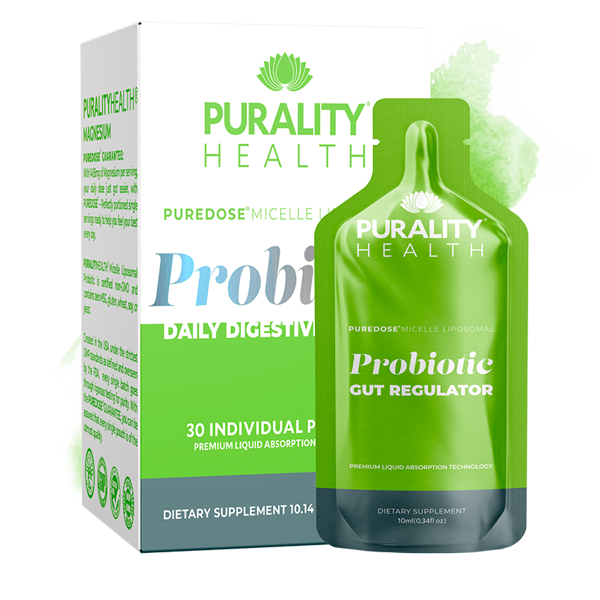
 Hot flashes – One study found that starting a probiotic supplement regimen led to a decrease in hot flashes. [13]
Hot flashes – One study found that starting a probiotic supplement regimen led to a decrease in hot flashes. [13]
 Sleep quality – A 2020 review of studies found a correlation between increased probiotic bacteria and sleep quality, as well as mood improvement in those with anxiety and depression. [14]
Sleep quality – A 2020 review of studies found a correlation between increased probiotic bacteria and sleep quality, as well as mood improvement in those with anxiety and depression. [14]
 Vaginal infections – A lack of estrogen can lead to an increase in bacteria that can lead to vaginal infections. Thankfully, certain strains of probiotics, such as L. rhamnosus, can reduce vaginal infections. [15, 16]
Vaginal infections – A lack of estrogen can lead to an increase in bacteria that can lead to vaginal infections. Thankfully, certain strains of probiotics, such as L. rhamnosus, can reduce vaginal infections. [15, 16]
 Osteoporosis – Several studies have shown that adding probiotics into your diet can help increase bone mineral density in postmenopausal women. [17]
Osteoporosis – Several studies have shown that adding probiotics into your diet can help increase bone mineral density in postmenopausal women. [17]
 Weight gain – A 2017 study found that probiotics can help reduce body weight, body mass index (BMI), and body fat percentage. [18]
Weight gain – A 2017 study found that probiotics can help reduce body weight, body mass index (BMI), and body fat percentage. [18]
If you’re looking to beat the symptoms of menopause, whether you’re about to go through it or already have, then adding a high-quality probiotic strain to your health regimen is highly recommended.
Here at Purality Health, we offer the most researched probiotic strain out there: L. rhamnosus.
L. rhamnosus is a powerful probiotic that effectively eliminates harmful bacteria in the gut while promoting the growth of good bacteria and SCFAs.
Plus, it’s the most absorbable L. rhamnosus probiotic on the market!
>>> Learn more, see reviews, and read the full ingredient list (only 5 beneficial ingredients) of Purality Health’s highly-rated Micelle Liposomal L. Rhamnosus Probiotic by clicking here!
The post The Gut-Hormone Connection: How Probiotics Support Women’s Hormones appeared first on Purality Health® Liposomal Products.
What's Your Reaction?








